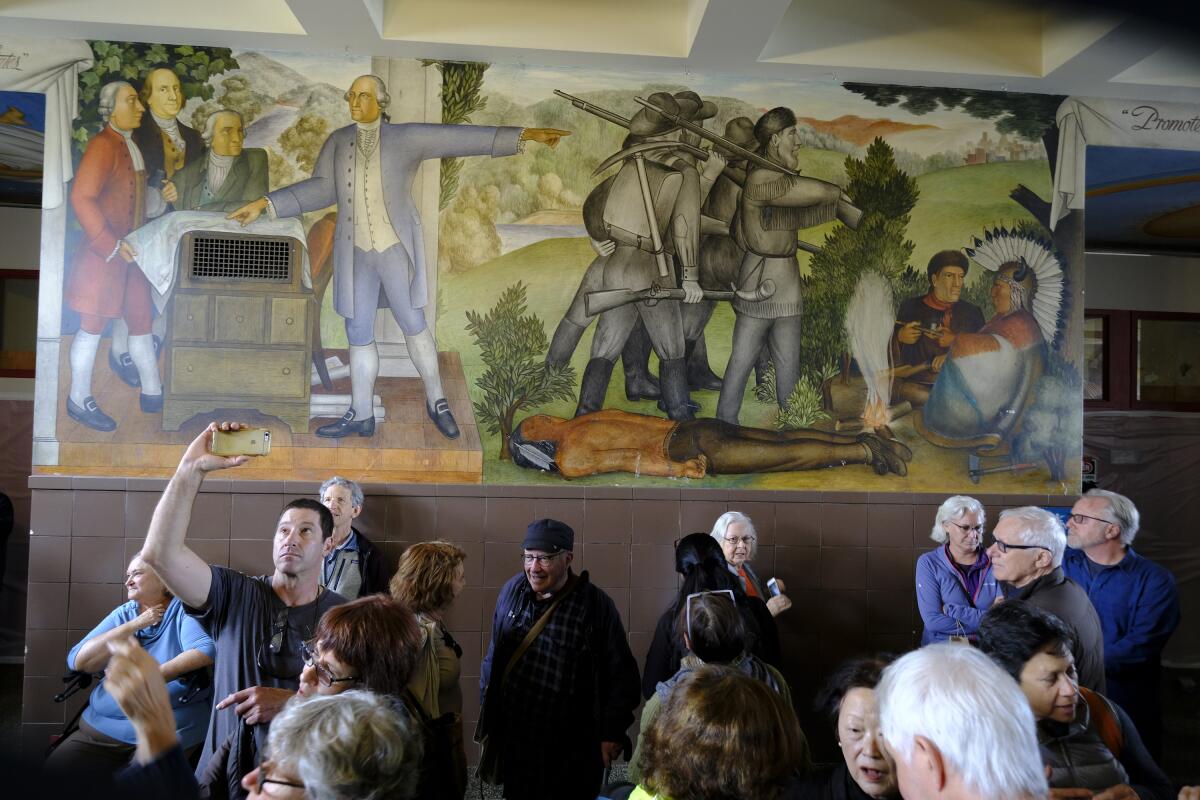San Francisco schools are a mess. It will take an outsider to fix them

- Share via
It’s been one embarrassment after another for San Francisco‘s schools in recent years. Now things have reached a new low, with the former vice president of the school board suing her colleagues because of an escalating dispute triggered by some old, ugly tweets.
More important: The city and county of San Francisco has sued the school district, not over some contested property or other minor dispute, but for allegedly depriving students of a good education. School officials did so, the lawsuit argues, by refusing to reopen schools despite low COVID-19 rates.
So much drama, all coming on top of years’ worth of frankly nonsensical moments in the San Francisco Unified School District — perhaps most famously, its attempt to change the names of 44 schools. On Tuesday the school board is scheduled to consider pausing the renaming plan, but the reputational damage has already been done.
The district is clearly unable to climb out of the hole it has dug for itself. Time for it to bring in some outside guidance. If it doesn’t, the state Education Department should be taking a look and advising — that is, pushing — school leaders to get their students an education without all the internecine battles and diversions.
Four years ago, San Francisco was the worst county in the state for Black students, who account for 7% of the enrollment there. They attended segregated schools and scored far lower on standardized tests than their counterparts statewide. The city, which is far wealthier than Los Angeles, posted much worse achievement gaps for Black students, regardless of whether they lived in poverty. The district’s effort to desegregate its schools and give Black and Latino families more access to coveted campuses actually made things worse and was scrapped.
Since then, the district seems to have spent its time worrying more about making symbolic and sometimes harmful gestures on racial equity than about providing Black and Latino students the kind of education to which they are entitled. For example, witness the board’s debate two years ago over whether to destroy an anti-racist, Depression-era mural at one of its schools on the grounds that its image of America’s racist past was, in a sense, racist itself. It eventually decided to cover the mural rather than destroy it, only a nominally better decision.
Or consider how the district tried to address the disproportionately low enrollment of Black and Latino students at its most prestigious school, Lowell High, which had a competitive admissions policy. It instituted a lottery, a counterproductive move for a school designated to maintain especially high expectations of its students. A group of parents has threatened to sue. This could have been resolved equitably and sensibly by adopting a holistic admissions system like the one at the University of California, which considers multiple factors aside from grades and test scores to measure applicants’ potential.
In late January, when the school board should have been considering how to reopen its campuses so that students — especially low-income students — could get a better education, it was instead voting to rechristen 44 schools whose names were perceived as honoring racist or otherwise oppressive people or places. Some of the renamings made sense; other cullings, such as schools named for George Washington and Thomas Jefferson, were highly questionable, and yet others, such as Paul Revere, were based on research too sloppy for a fourth-grader. This provoked a lawsuit claiming that the school board had rushed the process and failed to include parents and the public, as well as the lawsuit from the city and county, which said, for crying out loud, would you just focus on reopening the schools?
Topping it off was the discovery of an old tweet from Alison Collins, until recently the school board’s vice president, invoking racist tropes against Asian Americans. Collins apologized for hurting feelings but has not apologized for the tweets themselves or admitted that they were racist. As a result, the board stripped her of her vice presidency, which in turn led her to sue her colleagues.
If this were made into a play about the schools, people would be tempted to say it was a parody, that it couldn’t possibly be about real people in charge of educating 57,000 kids. If only.
The board has one very important move that it needs to make now: Bring in a top consultant to knock some sense into its members and put the schools on the right track. The best way to bring equity to low-income students of color? Fewer lawsuit-worthy shenanigans, please, and more education.
More to Read
A cure for the common opinion
Get thought-provoking perspectives with our weekly newsletter.
You may occasionally receive promotional content from the Los Angeles Times.









